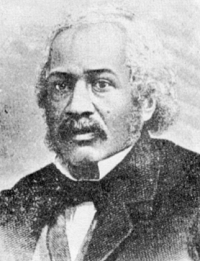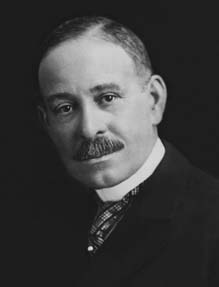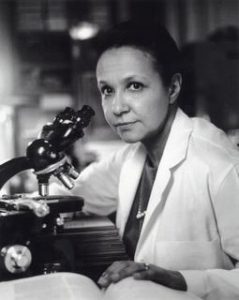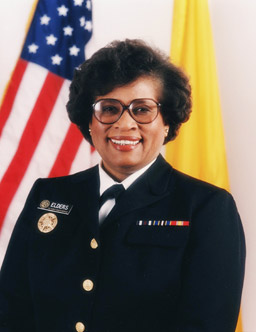This year we acknowledge all Black scholars and medical practitioners who have created an influential impact in our lives today. As the 2022 theme of Black History Month is Black Health and Wellness, we focus on Black individuals who made a difference in medicine with their discoveries and accomplishments. I have always been motivated by people who have such passion for things they love, and always reach success no matter what hardships they have endured. The following are a few of those Black American medical pioneers who have helped shape healthcare systems today.
1) James McCune Smith (1813 – 1865)
 Was born in New York City in 1813, during the time of Black slavery. From a young age, James McCune Smith formed an ambition to become a doctor. With early anti-Black discrimination, he struggled to find education as most universities denied him, but the University of Glasgow in Scotland accepted him. He there earned his bachelor’s, master’s and medical degrees at the age of only 24. With his strengths and experiences, he established his own medical pharmacy, making him the first Black doctor in America to own a medical practice. There he treated both white and Black individuals. Not only did he serve as a doctor; he also advocated for abolishing slavery in America.
Was born in New York City in 1813, during the time of Black slavery. From a young age, James McCune Smith formed an ambition to become a doctor. With early anti-Black discrimination, he struggled to find education as most universities denied him, but the University of Glasgow in Scotland accepted him. He there earned his bachelor’s, master’s and medical degrees at the age of only 24. With his strengths and experiences, he established his own medical pharmacy, making him the first Black doctor in America to own a medical practice. There he treated both white and Black individuals. Not only did he serve as a doctor; he also advocated for abolishing slavery in America.
The great hindrance to the advancement of the free coloured people is the want of unity in action. – James McCune Smith
2) Daniel Hale Williams (1856-1931)
 After training with a professional surgeon, he earned his medical degree and commenced working in Chicago as a surgeon in 1884. Discrimination had continued, and Daniel Hale Williams was prevented from working in a hospital. Therefore, he built his own Black-owned interracial hospital making him the first African-American to do so in the US. Along with the hospital, he also established the first school for Black nurses. He has served in support of all Black individuals who needed the resources to follow their passion into medicine. Most importantly, Daniel H. Williams was the first known cardiologist to perform a successful open-heart surgery.
After training with a professional surgeon, he earned his medical degree and commenced working in Chicago as a surgeon in 1884. Discrimination had continued, and Daniel Hale Williams was prevented from working in a hospital. Therefore, he built his own Black-owned interracial hospital making him the first African-American to do so in the US. Along with the hospital, he also established the first school for Black nurses. He has served in support of all Black individuals who needed the resources to follow their passion into medicine. Most importantly, Daniel H. Williams was the first known cardiologist to perform a successful open-heart surgery.
Anything is possible when it’s done in love, and everything you can do should be done in love or it will fail. – Daniel Hale Williams
03) Jane Cooke Wright (1919 – 2013)
 Dr. Jane Cooke Wright worked at the Cancer Research Foundation in Harlem, established by her father. She and her father researched chemotherapy drugs that reduced leukemia and lymphoma. Wright created a new understanding and innovation where she tested the drugs on the cancer patient’s tissues rather than mice. Her well-executed idea helped propose a viable treatment for cancer. There she became the president of The New York Cancer Society and worked as the director of cancer chemotherapy at New York University Medical Center.
Dr. Jane Cooke Wright worked at the Cancer Research Foundation in Harlem, established by her father. She and her father researched chemotherapy drugs that reduced leukemia and lymphoma. Wright created a new understanding and innovation where she tested the drugs on the cancer patient’s tissues rather than mice. Her well-executed idea helped propose a viable treatment for cancer. There she became the president of The New York Cancer Society and worked as the director of cancer chemotherapy at New York University Medical Center.
When you’re doing research in cancer, there’s always this tremendous challenge; nobody else has found the answer… maybe I will. – Jane C. Wright
04) Joycelyn Elders ( b.1933)
Joycelyn Elders grew in segregated and a place of destitution. She started working in the cotton fields when she was 5, therefore she did not receive a proper education. With her perseverance and intelligence, she earned a scholarship to go to all-Black liberal arts Philander Smith College, where she studied to become a doctor. She served in the U.S military service for three years and then became a pediatric endocrinologist. In addition, when Bill Clinton was elected for president he appointed Joycelyn Elders as U.S surgeon general.
We’ve tried ignorance for a thousand years. It’s time we try education. – Joycelyn Elders
05) Patricia Bath (1942 – 2019)
Was amongst the first Black woman to complete ophthalmology residency in New York University’s School of Medicine. She always believed how “eyesight is a basic human right.” Moreover, she was the co-founder of the American Institute for the Prevention of Blindness. From there she studied more about laser technology and soon discovered it could be used for eye surgery. She innovated a device called Laserphaco probe as a method to treat cataracts. She patented the medical invention and became the first female doctor to do so.
Do not allow your mind to be imprisoned by majority thinking. Remember that the limits of science are not the limits of imagination. – Patricia Bath
Sources: Featured Image, 1, 2

